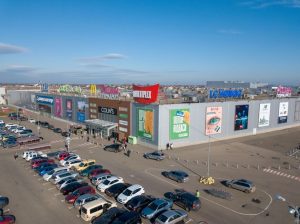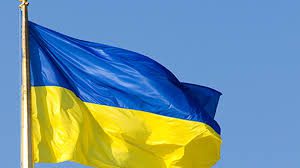
On the first of the quarantine easing on May 11, nearly 90% of the outlets who got permission to work (except for entertainment and public foodservice areas) opened all over Ukraine, except for Kyiv, Lviv and Chernivtsi region.
“Since May 11, all stores in the shopping centers in Ukraine can operate in all cities except for Kyiv, Lviv and Chernivtsi region.The work of the outlets that do not sell clothes and shoes is permitted in Lviv trade center. Attendance on May 11 was expectedly low. As previously expected, attendance drop rate in the different objects can reach 25-50%. Such indicators have already been demonstrated by the shopping centers in countries where they opened earlier,” Head of Council of Shopping Centers of Ukraine and Chief Operation Officer of the Budhouse Group Maksym Havriushyn said.
According to him, nearly 90% of the outlets, who got permission to work (except for entertainment and public foodservice), opened in the Ukrainian shopping malls. A number of 95% areas and 93% of the outlets among those authorized to work opened in the shopping centers of Budhouse Group (Fabrika in Kherson, Liubava in Cherkasy, and Forum in Lviv).
“Thus, taking into account the areas, which are not permitted to work as for now, 63% of the areas and 80% leaseholders function in our trade centers. Except for Forum Lviv trade center, where 32% of the areas work now,” he said.
He said attendance rate in the shopping mall of Budhouse Group was falling by 25% compared to 2019.
“Attendance in Forum Lviv trade center almost remains at the same level that was before May 11. It is too early to talk about the turnover of stores in our shopping centers on the first day, but some leaseholders note a high conversion and the average check is higher than usual,” he added.

Ukraine may benefit from the restructuring of supply chains that will follow the crisis, said regional economist at the European Bank for Reconstruction and Development (EBRD) and former head of the Central Bank of Macedonia Dimitar Bogov.
“Ukraine, with its geographical proximity to Western Europe and the size that can have economies of scale, has every opportunity to capitalize on such a post-crisis development. This crisis will also provide additional impetus to the information and communication technology, e-commerce and delivery services industries while challenging the business models of retail, real estate services and the sharing economy,” Bogov in an interview with Interfax-Ukraine.
In his opinion, this is one of the economic opportunities that will arise in response to the Covid-19 crisis in the long run.
“The crisis can lead to a more thorough study of supply chains with an emphasis on sustainability and diversification. In many sectors, one economy, often China, is now the dominant global supplier,” he said.
In some of these sectors, the economies of the EBRD regions already have comparative advantages and large export volumes, which could lead to further expansion of their exports, he added.

The metallurgical enterprises of Ukraine in 2020, according to the updated forecast, will reduce steel production by 4.1%, to 20 million tonnes compared to actual production in 2019 in the amount of 20.848 million tonnes, and by 7% compared to the original forecast, when steelmaking in the country was predicted this year in the amount of 21.5 million tonnes.
According to the updated balance sheet for the formation and consumption of scrap metal in Ukraine for 2020, published by the Ukrainian Association of Secondary Metals (UAVtormet), 2.7 million tonnes of scrap metal will be required to produce 20 million tonnes of steel at Ukrainian metal enterprises (a decrease of 10.3% compared to 2019, when 3.011 million tonnes of imported scrap metal was delivered).
In addition, it is forecasted that export of scrap metal from Ukraine this year will amount to 50,000 tonnes, while in 2019 it amounted to 40,900 tonnes (an increase of 22.2%). At the same time, scrap import in 2020 will also amount to 50,000 tonnes.
At the same time, according to the balance sheet, scrap metal procurement in 2020 should decrease by 18.2% compared to 2019, to 2.750 million tonnes.
It is also stated that in January-April 2020, Ukraine reduced steel production by 9.5% compared to the same period last year, to 6.731 million tonnes. During this period, 901,100 tonnes of scrap metal was delivered to the country’s metal enterprises (a decrease of 8.7% compared to the four months of 2019). Exports of scrap metal from Ukraine in the four months decreased by 59.1%, to 11,600 tonnes, imports by 74.6%, to 5,700 tonnes. Scrap metal procurement for this period fell by 10.2%, to 958,300 tonnes.

Gallusman, one of Ovostar Union companies, plans to begin the construction of an egg production complex in Latvia in partnership with the energy company ADVEN in 2021, the project is currently at the stage of assessing potential environmental impacts. According to Ovostar, it is expected that the new production complex will export up to 90% of its products. Another Latvian subsidiary of Ovostar, Ovostar Europe, which since 2015 has been cooperating with the group’s trading partners in the EU countries, will be engaged in export sales. The goal of Ovostar is to enter new markets in Europe and the Middle East.
“Today, the project is at the stage of assessing the potential impact of the new production on the environment. The examination should be completed before the end of this year, and the start of construction work is scheduled for 2021,” the company noted.
It is projected to bring about EUR 100 million investment and 200 new jobs to the Latvian economy.
Ovostar reported that Gallusman and ADVEN had already signed a letter of intent. The partnership of the companies is aimed at finding the best energy and infrastructure solutions for the egg production complex to achieve non-waste production.
“Upon completion of the project, Gallusman will become a leader in the poultry industry and animal feed trade in Latvia, as well as the largest producer of eggs and egg products in Northern Europe,” Ovostar said.
Gallusman is part of the Ovostar Union group. Ovostar Union, one of the leading Ukrainian agricultural holdings, is one of the largest egg producers in Europe. The business model of the company is built on the principle of a full production cycle.
BUILD, EGG, LATVIA, OVOSTAR, PRODUCTION

The reserves of natural gas in underground gas storage facilities (UGS) of Ukraine as of May 10, 2020 amounted to 17.032 billion cubic meters (bcm), according to recent data from JSC Ukrtransgaz.
According to the calculations of the Interfax-Ukraine agency, this volume exceeds the inventory indicator for the same date in 2015-2019 by 1.7-2 times (by 7-8.5 billion cubic meters).
According to Ukrtransgaz, as of May 1, 2020 non-residents stored 1.173 billion cubic meters of gas in the “customs warehouse” mode in the underground gas storage facilities, while residents some 1.197 billion cubic meters.
In particular, today companies from Austria, Germany, Poland, Slovakia, the United States, France, Switzerland and Estonia use the services of UGS facilities in Ukraine.
At the same time, over the four months of this year, the share of foreign traders is a quarter of the total volume of gas pumped into the storage facilities (551 million cubic meters out of 2.318 billion cubic meters).

Ukraine counts on $10 billion of financial support from various financial institutions in 2020, said Prime Minister of Ukraine Denys Shmyhal. “All these funds … Their volume this year exceeds $10 billion of financial support from various financial institutions, international financial organizations – the IMF, European bodies, the EU and partner countries,” he said during an hour of questions to the government in parliament on Wednesday.
At the same time, Shmyhal noted that most often the allocation of finance depends on the agreement of Ukraine with the International Monetary Fund.
“Therefore, it is very important that we move forward and receive these funds, so that next year we will have a 7% increase without rolling into the abyss and being not able to get out of it for another ten years,” added Shmyhal.